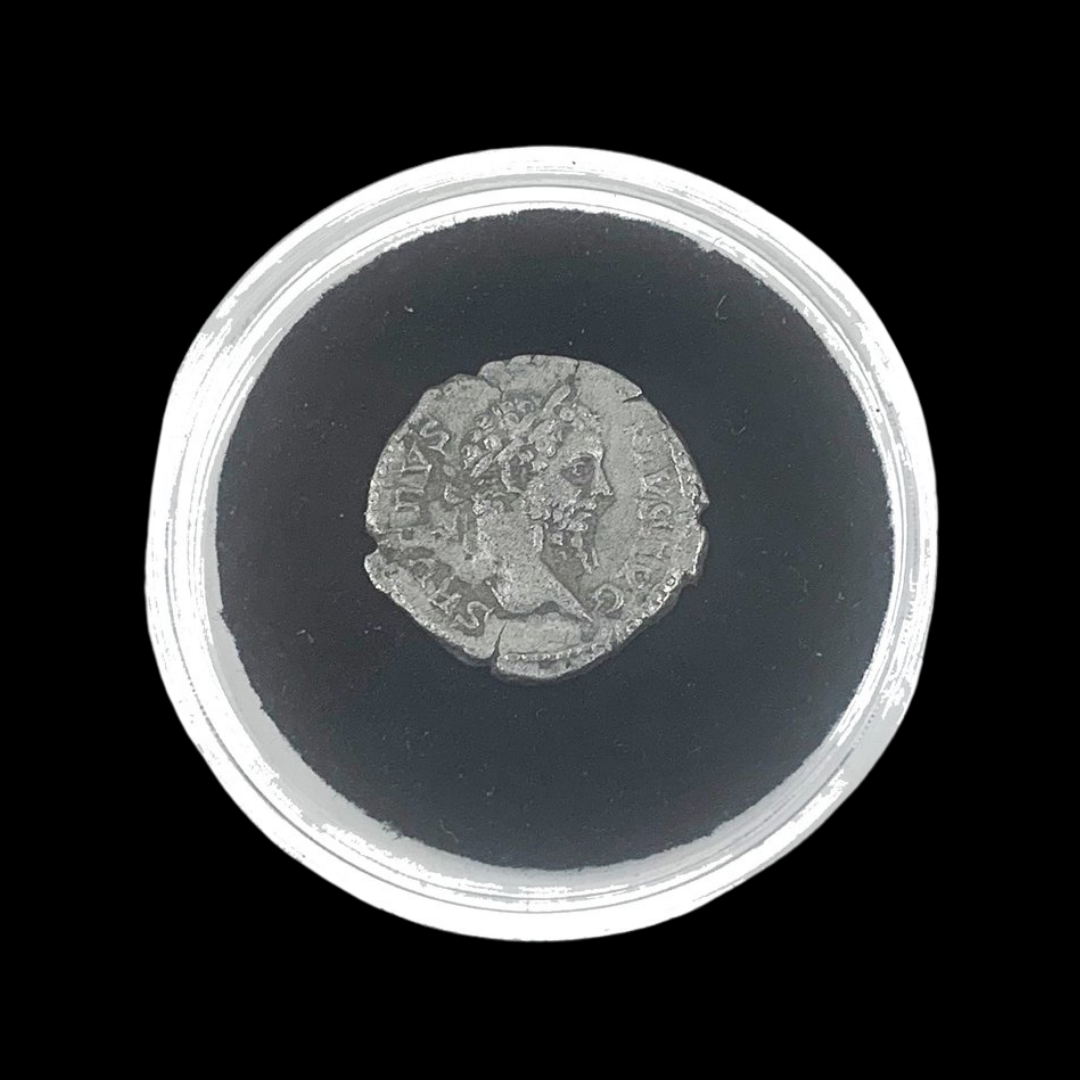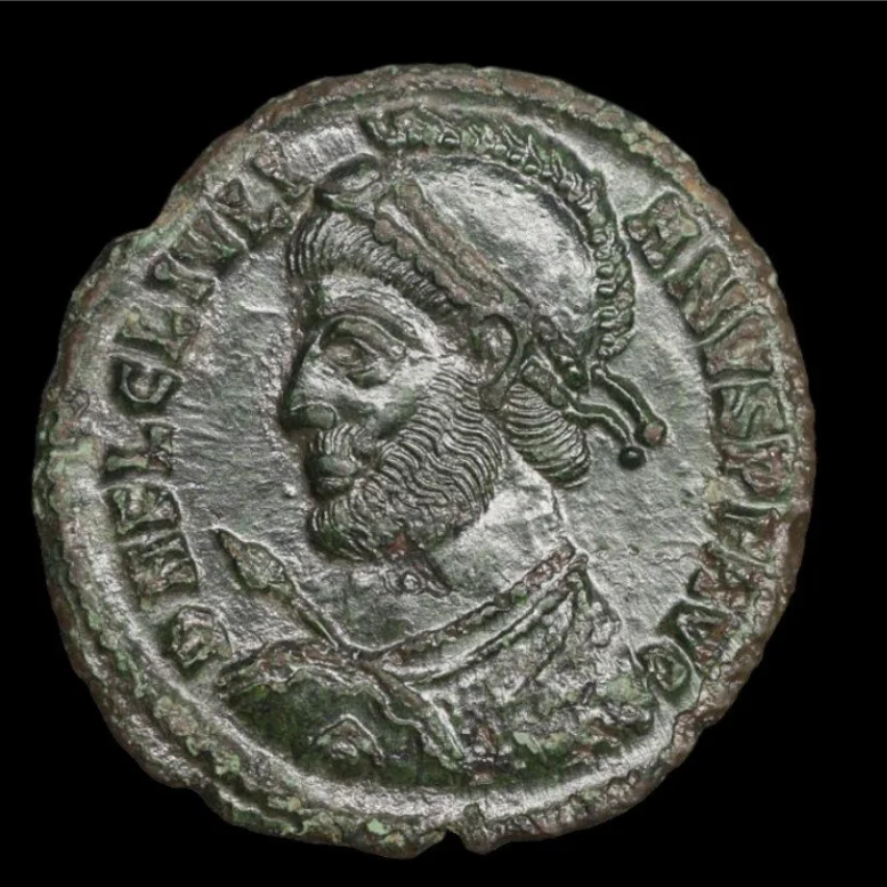 Image 1 of 8
Image 1 of 8

 Image 2 of 8
Image 2 of 8

 Image 3 of 8
Image 3 of 8

 Image 4 of 8
Image 4 of 8

 Image 5 of 8
Image 5 of 8

 Image 6 of 8
Image 6 of 8

 Image 7 of 8
Image 7 of 8

 Image 8 of 8
Image 8 of 8









Ancient Roman Bronze Coin of Crispus (Roman Prince and Son of Constantine the Great)
The coins shown are representative examples of the grade and type, but not the actual specimens for sale. For details on NGC’s grading standards and definitions, please refer to our NGC Grading page.
This bronze coin was issued for Crispus, the eldest son of Emperor Constantine the Great who served as Caesar (junior emperor) before his unexpected downfall. Minted in the early 4th century CE, this coin represents the brief career of a promising imperial heir during a period of significant religious and administrative transformation in the Roman Empire.
Coin Description:
Front side: Portrait of Crispus as a young man facing right, typically wearing a laurel wreath or rosette crown, with Latin inscriptions identifying him as Caesar
Back side: Likely depicts military standards, victory imagery, or references to imperial virtues such as valor or providence, typically with mint marks below
Technical Details:
Bronze alloy composition
Small denomination bronze coin (modern collector designation AE3 or AE4)
RIC (Roman Imperial Coinage) reference number not visible in description
NGC (Numismatic Guaranty Corporation) certified
Minted approximately 317-326 CE (during his tenure as Caesar)
Fine condition (showing expected wear from circulation)
Historical Significance:
This coin was produced during the career of Crispus, Constantine the Great's eldest son who, unlike his younger half-brothers, was born before his father became emperor. Given responsibility for the western provinces (Gaul, Britain, and Spain) at a young age, Crispus distinguished himself militarily against Gothic threats and in naval battles. These coins circulated during a period when the Roman Empire was becoming increasingly Christianized under Constantine, though many traditional Roman symbols remained on the coinage. Despite his successful military and administrative career, Crispus met a tragic end in 326 CE when he was executed on orders of his father, reportedly after being falsely accused by his stepmother Fausta. His sudden downfall and subsequent damnatio memoriae (condemnation of memory) make his coins historically significant as artifacts of a promising career cut short by imperial intrigue.
The coins shown are representative examples of the grade and type, but not the actual specimens for sale. For details on NGC’s grading standards and definitions, please refer to our NGC Grading page.
This bronze coin was issued for Crispus, the eldest son of Emperor Constantine the Great who served as Caesar (junior emperor) before his unexpected downfall. Minted in the early 4th century CE, this coin represents the brief career of a promising imperial heir during a period of significant religious and administrative transformation in the Roman Empire.
Coin Description:
Front side: Portrait of Crispus as a young man facing right, typically wearing a laurel wreath or rosette crown, with Latin inscriptions identifying him as Caesar
Back side: Likely depicts military standards, victory imagery, or references to imperial virtues such as valor or providence, typically with mint marks below
Technical Details:
Bronze alloy composition
Small denomination bronze coin (modern collector designation AE3 or AE4)
RIC (Roman Imperial Coinage) reference number not visible in description
NGC (Numismatic Guaranty Corporation) certified
Minted approximately 317-326 CE (during his tenure as Caesar)
Fine condition (showing expected wear from circulation)
Historical Significance:
This coin was produced during the career of Crispus, Constantine the Great's eldest son who, unlike his younger half-brothers, was born before his father became emperor. Given responsibility for the western provinces (Gaul, Britain, and Spain) at a young age, Crispus distinguished himself militarily against Gothic threats and in naval battles. These coins circulated during a period when the Roman Empire was becoming increasingly Christianized under Constantine, though many traditional Roman symbols remained on the coinage. Despite his successful military and administrative career, Crispus met a tragic end in 326 CE when he was executed on orders of his father, reportedly after being falsely accused by his stepmother Fausta. His sudden downfall and subsequent damnatio memoriae (condemnation of memory) make his coins historically significant as artifacts of a promising career cut short by imperial intrigue.





















